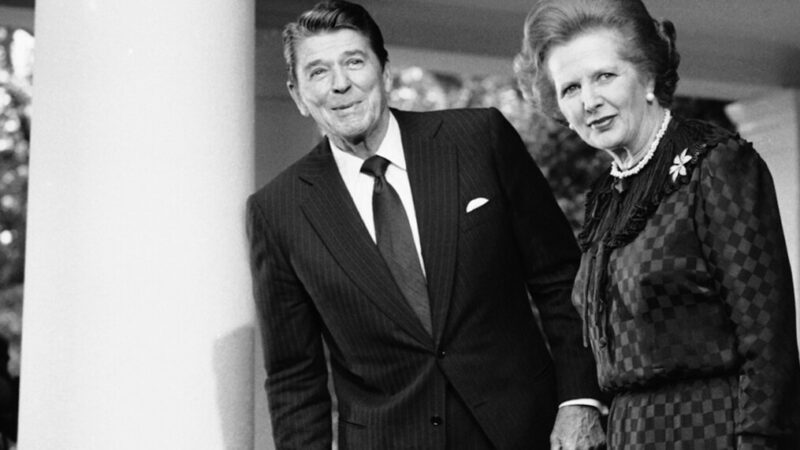The hard right’s takeover of the Tory Party is almost complete – but we can stop it.

If the Tories win the general election tomorrow, the UK will be governed by the most right-wing government since that led by Margaret Thatcher in the 1980s.
Victory will signify the final triumph of a thirty year campaign by the Eurosceptics, the ERGers, the deregulators and the free market fanatics over the Europhiles and One Nation Tories.
Centrists have fled the Tories, have been expelled or deselected. And grandees, such as former prime minister John Major, deputy prime minister Michael Heseltine and former chancellor Ken Clarke are encouraging voters to place their faith in parties other than the Tories.
From the defenestration of the Blessed Margaret in 1990, Tory right wingers and their allies formed a range of new political groupings, think-tanks and lobbying entities to work alongside a compliant print media to campaign for the extension of market ideology, a smaller state and exit from the hated European Union.
A recent example of the approach comes together in ‘Britannia Unchained’ – a free market polemic published in 2012 and written by Dominic Raab, Priti Patel, Liz Truss, and James Cleverly; all now occupying important cabinet positions, keen Boris Johnson supporters and Brexit advocates.
The right wing strategy has been to deploy grandiose, but usually discredited economic theories to illustrate that there is not only no alternative to their policy prescriptions but that such prescriptions are beneficial to national wellbeing.
Think the Laffer Curve; ‘trickle down’; the Reinhart-Rogoff hypothesis; public spending ‘crowding out’ private investment; making ‘work pay’ by cutting welfare benefits; and the nonsense of comparing public debt to household debt and ‘maxed-out’ credit cards.
Following a series of Tory leadership contests in the 1990s and early 2000s, elevating William Hague, the lamentable Iain Duncan Smith and ‘something of the night’ Michael Howard an apparent centrist – David Cameron – cunningly rebranded the Tories as a party committed to economic justice, social liberalism and environmentalism. Then the international financial crash of 2008 radically transformed the political terrain.
Having previously pledged to match Labour’s spending plans, the financial crisis provided the opening for Cameron, and his chancellor George Osborne, to achieve what they had secretly dreamed of doing – shrinking and reshaping the British state with a frontal assault on benefits, ‘scroungers’ and public services. Cameron, despite his Big Society rhetoric and superficially charming demeanour, was deep down a Thatcherite.
Under the guise of a quest for greater value for money in public services the Cameron Coalition, with the support of the Liberal Democrats, forced the poor and disadvantaged to shoulder the burden of paying off the bankers’ debts.
The Cameron-Osborne strategy was to (largely successively) recast a sub-prime mortgage crisis in the US, which quickly spread to the UK’s deregulated financial sector, as a Labour-created public spending crisis.
This resonated with the public, enabling Cameron to win a small Tory majority in the general election of 2015, with the Liberal Democrats paying the price for five years of austerity, which squeezed the economic recovery, pushed-up poverty, food bank usage and homelessness, while inflicting Iain Duncan Smith’s welfare ‘reforms’ on the most vulnerable citizens.
Today there is mounting evidence that the financial crisis and the resulting austerity led to Brexit, despite Cameron’s support for remain. In the twenty years before 2008, Euroscepticism in the UK averaged just 13%. Following the crash, this more than doubled to 30% and stayed high thereafter.
In the EU referendum, 95% of people classified as economically disadvantaged and anti-immigrant voted to leave the EU. They make up just 12% of the population – and are among the hardest hit by austerity. And multiple studies in the last two years have shown a strong correlation between leave voting and living in ‘left behind’ communities.
The leave campaign, bolstered by the mendacities of Johnson and Gove, relied on the disillusionment of voters to Cameroonian austerity to deliver their narrow victory result. Cameron and Osborne’s ideologically driven cuts had inadvertently led to Brexit and, ironically precipitated their political downfall.
This left a right-wing Tory party, which was anti-immigrant, anti-regulation, anti-public services, anti-Europe in the hands of the mendacious and Trump-aligned Boris Johnson and his ‘Britannia Unchained’ lieutenants.
This group is now mounting another con-trick on the British electorate – that Brexit can be achieved quickly and smoothly with little downside for the economy; that austerity is ended even though Johnson’s spending pledges only partly reverse the cuts made since 2010 by his ‘girly swot’ Eton rival David Cameron.
In tomorrow’s election let’s deny this rabidly right-wing Tory party, thirty years in the making, the majority it so ravenously craves.
Kevin Gulliver is Director of Birmingham-based research charity the Human City Institute and writes in a personal capacity.




3 Responses to “It’s time to end the dire legacy of Thatcherism”
JEFF HALLIGAN
None of this alters the fact that Labour is a disgustingly racist party which only self righteous hypocritical scum could support. I voted for it for 35 years, now you might as well vote for the BNP
Nick Elvidge
Hi Jeff – got any evidence? Na thought not – never mind mate Corbyn will see your family alright – your gran your kids etc xx
balearic punk
oh dear jeff ,a tory trol in hysterics. labour represent freedom of choice and a future for all. the toris have always had racists in its vile party,the monday club ,leaders of the nationl front and bnp were all ex torys and supporters of the tories. the anti muslim anti black stance of the tories has always been in place. the labour party are anti racist and anti fascist especially corbyn.